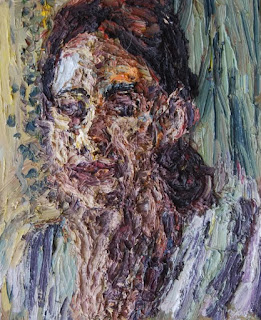 |
| Tory Jeremiah D'Anna, Untitled |
Many teachers buck at the interdisciplinary approach to learning because it means they may have to value intelligences different from their own which are harder to assign a number value to. Furthermore, because of the open-ended conversational creative collaboration that happens in the classroom with this type of instruction, the need for more subjective grades arise. I am not suggesting objective grades be discarded. However, much more of what is valued in the class should be the student's growth, persistence, creativity, and collaboration in the process with a learning community. Keep the children engaged, lessen grade anxiety, and your students will make progress on those standardized tests that you didn't view as the end-all, be-all of your instruction.
Consultation with colleagues and peers inside and outside of your school could provide some skeletons for you to work with, but the composed and knowledgeable reaction to your children's insights will mean more than any borrowed lesson plan. You must model what you teach, both as a Christian and as a lifelong learner. Priests, religious, and lay theologians would be worthy spiritual counsels for this endeavor provided they have a sense of worldly knowledge and are looking to redeem creation and the culture rather than make war with it.